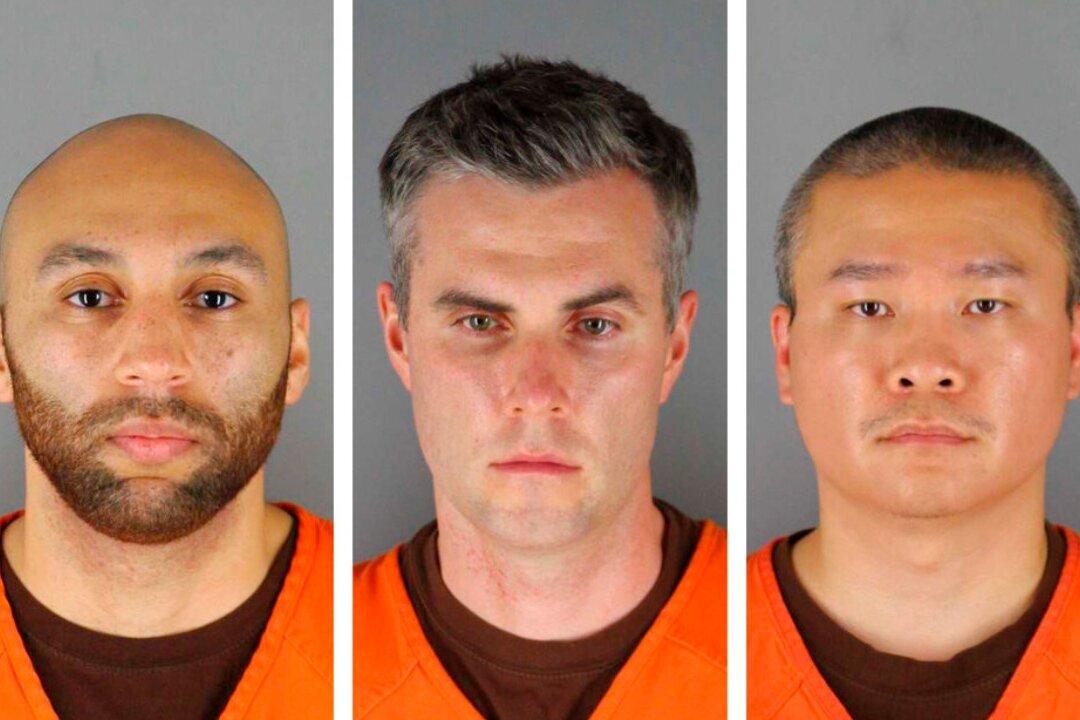MINNEAPOLIS—A judge set bail at $750,000 apiece Thursday for three fired Minneapolis police officers charged with aiding and abetting in the killing of George Floyd, as a memorial service took place just blocks away.
Tou Thao, Thomas Lane and J. Alexander Kueng made their first appearances in Hennepin County District Court as friends, relatives and celebrities gathered to memorialize Floyd at a nearby Bible college.





